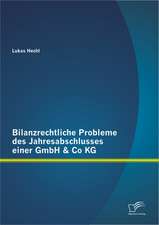Collaborative Practice: An International Perspective
Autor Connie Healyen Limba Engleză Paperback – 12 dec 2019
This book provides a doctrinal and empirical analysis of collaborative practice with a view to assessing its place within the dispute resolution continuum and addressing whether this criticism has been justified. It begins by establishing the theoretical underpinnings of conflict and differing approaches to conflict resolution, the impact of the comprehensive law movement and therapeutic jurisprudence. The origins and development of the collaborative process and the framework it provides for a multidisciplinary approach to conflict resolution is outlined. The book addresses the examination of the process undertaken in the lead up to the enactment of the Uniform Collaborative Law Act in 2010; now regarded as a model of best practice. Finally, through an examination of empirical research undertaken in the US, Canada and in England and Wales, and in presenting the results of the first known empirical research into the process in an Irish family law context, the book concludes with an evidenced based analysis of the process from the perspective of couples who chose to use the collaborative model to resolve the issues surrounding their relationship breakdown, collaborative lawyers and lawyers who do not advocate a non-adversarial approach.
As such this book provides a valuable insight into the process which will be of interest to: academics; practising lawyers; members of the judiciary; researchers in the fields of conflict resolution and family law and for students studying alternative dispute resolution (ADR).
| Toate formatele și edițiile | Preț | Express |
|---|---|---|
| Paperback (1) | 389.38 lei 6-8 săpt. | |
| Taylor & Francis – 12 dec 2019 | 389.38 lei 6-8 săpt. | |
| Hardback (1) | 997.93 lei 6-8 săpt. | |
| Taylor & Francis – 27 iul 2017 | 997.93 lei 6-8 săpt. |
Preț: 389.38 lei
Nou
Puncte Express: 584
Preț estimativ în valută:
74.51€ • 78.05$ • 61.75£
74.51€ • 78.05$ • 61.75£
Carte tipărită la comandă
Livrare economică 09-23 aprilie
Preluare comenzi: 021 569.72.76
Specificații
ISBN-13: 9780367874988
ISBN-10: 0367874989
Pagini: 186
Dimensiuni: 156 x 234 x 10 mm
Greutate: 0.45 kg
Ediția:1
Editura: Taylor & Francis
Colecția Routledge
Locul publicării:Oxford, United Kingdom
ISBN-10: 0367874989
Pagini: 186
Dimensiuni: 156 x 234 x 10 mm
Greutate: 0.45 kg
Ediția:1
Editura: Taylor & Francis
Colecția Routledge
Locul publicării:Oxford, United Kingdom
Public țintă
Postgraduate and UndergraduateCuprins
Contents
Table of cases
Table of Statutes
Abbreviations
Introduction
Chapter 1 - The Theoretical Foundations of Collaborative Law and Alternative Dispute Resolution
Introduction
The Theory of Alternative Dispute Resolution and the Importance of Understanding Conflict
Collaborative Practice on the Dispute Resolution Continuum
Collaborative Practice as a ‘Vector’ in the Comprehensive Law Movement
What is Therapeutic Jurisprudence and How Has it Been Received?
Conclusion
Chapter 2 – The Process and the Unique features of Collaborative Practice
Introduction
The Origins and Development of Collaborative Law
The Process – a broad overview
The Participation Agreement
The Disqualification Clause
The unique elements of the collaborative process
Are collaborative lawyers taking on a higher level of ethical standards?
So why would lawyers agree to engage with this process?
The Multidisciplinary Model
Conclusion
Chapter 3 – The Advent of the Uniform Collaborative Law Rules/Act 2010 and the ripple effect.
Introduction
The Impetus for an Act
The Uniform Collaborative Law Act
Prior to Engaging in the Process
Engaging in the Process – Core procedural provisions under the Act
The Impact of the Uniform Collaborative Law Act – Ireland as a case study
Conclusion
Chapter 4 – What has the research revealed?
Introduction
International Research - Methodology
Who is using the p
Table of cases
Table of Statutes
Abbreviations
Introduction
Chapter 1 - The Theoretical Foundations of Collaborative Law and Alternative Dispute Resolution
Introduction
The Theory of Alternative Dispute Resolution and the Importance of Understanding Conflict
Collaborative Practice on the Dispute Resolution Continuum
Collaborative Practice as a ‘Vector’ in the Comprehensive Law Movement
What is Therapeutic Jurisprudence and How Has it Been Received?
Conclusion
Chapter 2 – The Process and the Unique features of Collaborative Practice
Introduction
The Origins and Development of Collaborative Law
The Process – a broad overview
The Participation Agreement
The Disqualification Clause
The unique elements of the collaborative process
Are collaborative lawyers taking on a higher level of ethical standards?
So why would lawyers agree to engage with this process?
The Multidisciplinary Model
Conclusion
Chapter 3 – The Advent of the Uniform Collaborative Law Rules/Act 2010 and the ripple effect.
Introduction
The Impetus for an Act
The Uniform Collaborative Law Act
Prior to Engaging in the Process
Engaging in the Process – Core procedural provisions under the Act
The Impact of the Uniform Collaborative Law Act – Ireland as a case study
Conclusion
Chapter 4 – What has the research revealed?
Introduction
International Research - Methodology
Who is using the p
Descriere
Providing a doctrinal and empirical analysis of the concept of collaborative law, this book offers an original perspective on a multidisciplinary approach to conflict resolution. Synthesising research carried out into collaborative practice in the US, Canada and in England and Wales, it assesses the legal ethics surrounding collaborative practic








